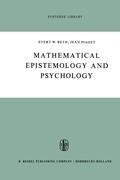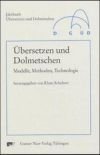
-
 Anglický jazyk
Anglický jazyk
Mathematical Epistemology and Psychology
Autor: E. W. Beth
One of the controversial philosophical issues of recent years has been the question of the nature of logical and mathematical entities. Platonist or linguistic modes of explanation have become fashionable, whilst abstrac tionist and constructionist theories... Viac o knihe
Na objednávku
197.99 €
bežná cena: 219.99 €
O knihe
One of the controversial philosophical issues of recent years has been the question of the nature of logical and mathematical entities. Platonist or linguistic modes of explanation have become fashionable, whilst abstrac tionist and constructionist theories have ceased to be so. Beth and Piaget approach this problem in their book from two somewhat different points of view. Beth's approach is largely historico-critical, although he discusses the nature of heuristic thinking in mathematics, whilst that of Piaget is psycho-genetic. The major purpose of this introduction is to summarise some of the main points of their respective arguments. In the first part of this book Beth makes a detailed study of the history of philosophical thinking about mathematics, and draws our attention to the important role played by the Aristotelian methodology of the demon strative sciences. This, he tells us, is characterised by three postulates: (a) deductivity, (b) self-evidence, and (c) reality. The last postulate asserts that the primitive notions of a demonstrative science must have reference to a domain of real entities in order to have significance. On the Aristote lian view discursive reasoning plays a major role in mathematics, whilst pure intuition plays a somewhat subordinate one.
- Vydavateľstvo: Springer Netherlands
- Rok vydania: 1974
- Formát: Hardback
- Rozmer: 241 x 160 mm
- Jazyk: Anglický jazyk
- ISBN: 9789027700711




 Nemecký jazyk
Nemecký jazyk 
 Ruský jazyk
Ruský jazyk 




